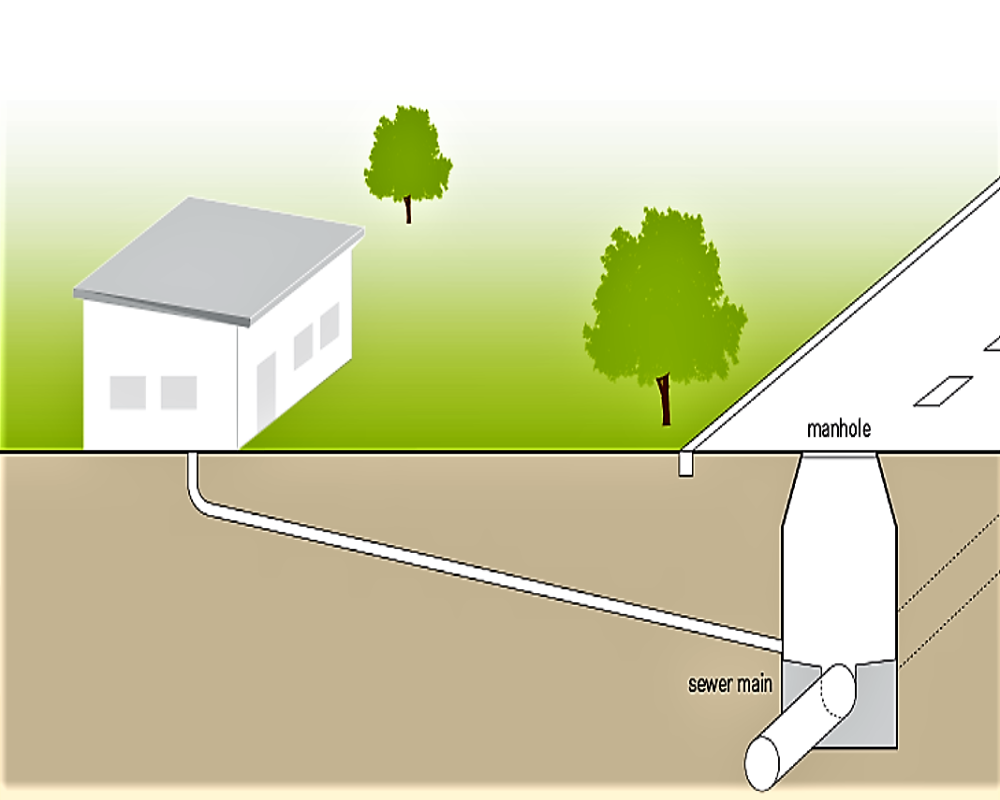Introduction
Sewer connectivity is a critical factor when considering the usability and development potential of commercial land. Without proper sewer systems in place, a site could face significant health, safety, and environmental risks, which could ultimately hinder the development and operation of the property. A reliable and accessible sewer connection ensures that wastewater from commercial activities can be safely and efficiently removed, helping maintain hygiene standards, avoid contamination, and meet local regulatory requirements.
1. Importance of Sewer Connectivity
Sewer connectivity is essential for managing the wastewater generated by commercial activities such as office buildings, restaurants, retail stores, or manufacturing plants. Proper sewer infrastructure is necessary to avoid environmental pollution and health hazards like standing water, contamination of nearby water bodies, and unsanitary conditions that can negatively impact employees, customers, and the surrounding community.
2. Local Sewer System Access
Before considering a commercial site for development, it’s essential to check whether the property has access to a local sewer system. This often involves contacting the local municipal authority or utility provider to determine if the area is served by an existing sewer network. In areas without municipal sewer access, businesses may need to explore other options, such as septic systems or private sewage treatment plants.
3. Sewer Line Capacity and Upgrades
Even if a commercial property is within reach of the local sewer system, developers must verify that the existing infrastructure can handle the wastewater load that the new development will generate. This includes evaluating the size and capacity of the local sewer lines and ensuring that they are capable of accommodating the additional demand. In some cases, upgrades to the existing sewer infrastructure may be required to prevent overloading and ensure long-term functionality.
4. Sewer Connection Fees and Costs
When connecting to municipal sewer systems, property owners are often required to pay connection fees or infrastructure development charges. These costs can vary significantly depending on the location and size of the project. Developers should plan for these expenses early in the development process and ensure that they fit within the overall project budget. Additionally, the costs for any upgrades to the existing system should also be considered.
5. Environmental Considerations and Compliance
In many regions, sewer systems are tightly regulated to ensure that wastewater is treated and disposed of in an environmentally responsible manner. Developers must ensure that their planned sewer connectivity complies with local regulations regarding wastewater treatment, discharge limits, and environmental protection. Failure to meet these requirements could result in fines, delays, or issues with securing permits for the development.
6. Alternatives to Municipal Sewer Connection
In areas where connecting to a municipal sewer system is not feasible or practical, alternatives must be considered. For example, a property may rely on a private septic system, which treats and disposes of wastewater on-site. Septic systems can be effective for smaller developments or properties with limited access to infrastructure, but they require regular maintenance and monitoring to avoid failure or contamination risks.
7. Wastewater Treatment Needs
For some commercial properties, particularly those with high water usage or industrial operations, the site may require additional wastewater treatment capabilities. Developers must consider whether the existing sewer infrastructure is capable of handling the type and volume of wastewater generated or whether the property will need to incorporate on-site treatment facilities such as a sewage treatment plant. This is especially important for manufacturing or processing plants where the wastewater may contain hazardous materials.
8. Impact on Property Value
Having access to a reliable and efficient sewer system can significantly enhance the value of a commercial property. Properties with established sewer connectivity tend to be more attractive to developers and investors because they eliminate the risk and expense of building an on-site treatment system. In contrast, properties lacking sewer connectivity may have reduced marketability or face additional costs, which could lower their overall value.
9. Long-Term Maintenance and Monitoring
Once sewer connectivity is established, the ongoing maintenance of both the sewer system and any associated infrastructure is crucial to ensuring the long-term usability of the commercial land. This includes regular inspections of the system, checking for blockages, leaks, or other issues that could affect the flow of wastewater. Property owners and managers should also be aware of any periodic maintenance required by the local utility provider and plan for associated costs.
10. Collaboration with Local Authorities
Developers must work closely with local authorities and utility providers throughout the sewer connection process. Early engagement with these entities helps streamline approvals and ensures compliance with all local laws and regulations. Additionally, local authorities may have specific requirements for the design, installation, and inspection of the sewer system, and developers must ensure they meet these requirements to avoid delays in development or future operational issues.
Conclusion
Establishing sewer connectivity is a vital step in ensuring the usability and sustainability of commercial land. It supports the efficient disposal of wastewater, prevents health risks, and complies with environmental regulations. Developers must carefully assess the local sewer system’s capacity, connection costs, and any required upgrades before proceeding with construction. By securing reliable sewer access and considering alternative solutions when necessary, businesses can avoid costly setbacks and ensure the long-term functionality of their commercial properties.
Hashtags
#SewerConnectivity #CommercialLand #UrbanDevelopment #InfrastructureInvestment #SmartCities #SustainableGrowth #EconomicDevelopment #LandUsability #PublicHealth #WastewaterManagement #CommunityPlanning #BusinessGrowth #EnvironmentalSustainability #UrbanPlanning #RealEstateDevelopment #InfrastructureSolutions #CityPlanning #CommercialRealEstate #SewerSystem #LandDevelopment


